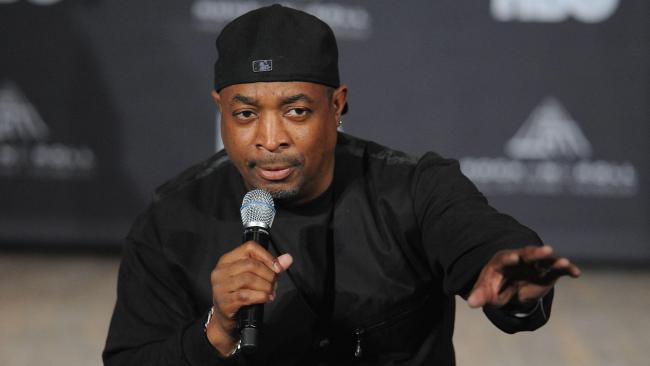Which begs the question of why hip hop legends that helped to create this now-global culture are seldom given the respect or platform they deserve. It’s true that hip hop is youth-oriented and built around battling and besting the next man, and that’s not necessarily a mindset that breeds respect. And as The Guardian noted in its music blog, the urban family structure may influence hip hop’s treatment of its elders:
“Culturally, the lack of a father figure in a majority of ghetto homes also plays a role. Hip-hop manifests this as an obsession with one’s immediate peer group and a dismissal of elders. Knowledge isn’t handed down; what little knowledge there is gets shared by peers. People raised in ‘the streets’ know nothing but ‘the streets.’ The codes and the rules of the streets don’t necessarily allow reverence for elders.”
True enough, but there’s a larger factor in the equation that no one is talking about, and that’s the influence of corporations. It’s no secret that corporations now control mainstream hip hop culture – if it can even be called a culture anymore.
One company – Viacom – owns BET and MTV. One company – Clear Channel — owns the majority of radio stations in the country. One company – Live Nation – produces most of the concerts in the U.S. And since 1988, the major labels have been reduced from six to three.
So the result is a consolidation of control over our music, and a very small number of people deciding what a large number of people will see and hear. Corporations now determine who gets signed, who gets radio spins, who gets national tours and who appears on 106 & Park.
And this, in turn, determines who gets covered by your favorite magazines and blogs, because at this point, hip hop journalism has degenerated from actual reporting and analysis to blindly promoting “hot” artists in an effort to draw readers and boost page views. read more at the grio



